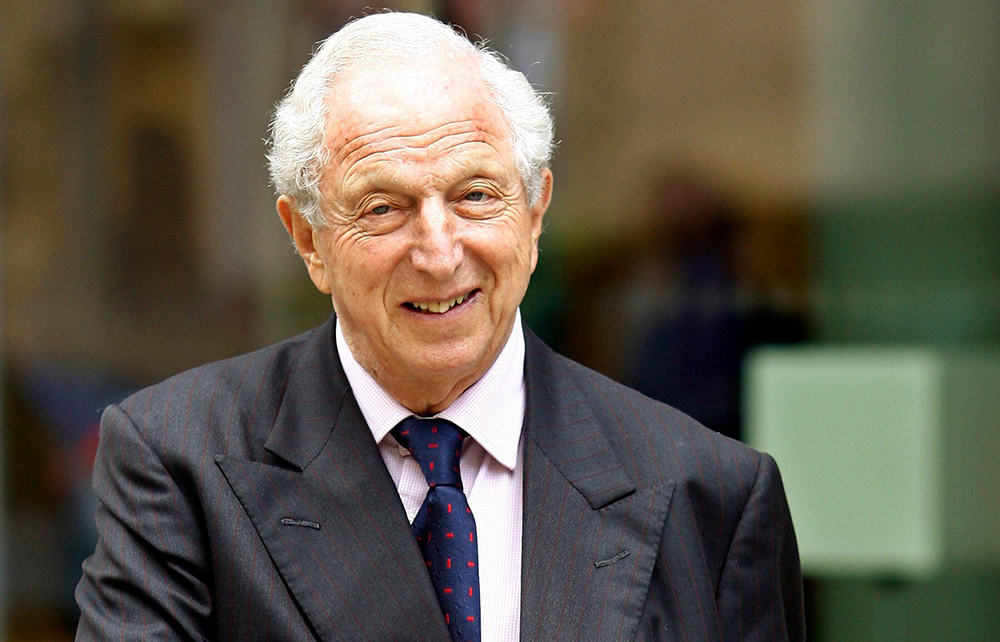Senior judges are often seen as being cloistered and aloof, carrying the heavy responsibility of incarcerating hundreds of people every year without having heard the clang of prison doors themselves. Lord Woolf is an exception. The former Lord Chief Justice (2000-5) was not only banged up as a student – after protesting over the banning of rag day – but volunteered as a senior judge to spend a night in jail. He and his wife surrendered their personal belongings and were shown into a cell in Brixton prison: ‘We then had the difficult decision to make as to who would occupy the top bunk and who the lower.’ It was, he recalls, ‘a memorable experience’, adding: ‘When the door closes behind you, you obtain a real sense of what imprisonment means. You do learn a lesson.’
Woolf recounts this episode in An Uncommon Lawyer. At the time he was Master of the Rolls, before moving to the top job of Chief Justice. In that post, by his admission, the tabloids saw him as not just wet but ‘dripping wet’. One newspaper even called for his removal and sent a van to the High Court to remove his effects after he’d opposed tougher jail sentences. But such tactics, he says, did not divert him from doing what he believed to be right.
As Chief Justice, Lord Woolf was seen by the tabloids as not just wet but ‘dripping wet’
His liberal views put him out of sync with the public mood at the time. But his legacy is plainly far more than being a figure of derision in the popular press. He delivered a landmark report on prison overcrowding after the riots at Strangeways in 1990, and advocated a revolutionary change in how civil court battles are fought in an effort to cut their prohibitive costs. Neither report, however, was fully implemented – possibly through the legal system’s ingrained antipathy to change. He is frank about such disappointments.
Legal memoirs are usually commonplace, and risk being catalogues of glittering prizes and self-justification. The law being such a competitive world, a career in it is either deemed a success or nothing. Woolf reached the three top judicial positions, yet he still confesses: ‘Throughout my career I have a habit of having good ideas which do not turn out so well in practice.’
Being born of ‘immigrant stock of Jewish heritage’ was key to his ambition. His parents, at the time based in Newcastle, had created a successful building firm, and there was enough money for the young Harry to own a horse and a sports car. But he also grappled with dyslexia and a stutter. A teacher told him to forget his aspirations to be a barrister – a comment that drove him to succeed. And, of course, anti-Semitism lurked. At Fettes he put it down to teasing, but it definitely made progress at the Bar harder: ‘Certain chambers had the reputation of being not prepared to accept Jews and non-whites as members.’
His autobiography is concise and accessible, even if its style is more that of a judge than a gifted memoirist. Woolf accepts that the account is not ‘rounded’; and for all its candour there are judicious omissions. We learn, for example, that just two weeks before his planned marriage to Marguerite Sassoon their engagement was broken off and the wedding gifts – to his regret – were returned. No reason is given; and they did eventually marry the following year. Nor does he discuss his faith, save to say that he is ‘not convinced of the existence of God’, but values the security of religious traditions.
These gaps are outweighed by moments of frankness. He recalls how on one occasion his wife, by then a magistrate, was sitting in his court and, after he’d imposed sentence, told him that he had been too harsh (unusual for him). He reflected, and called the defendant back the next day to reduce the sentence. He also describes how, years later, he was criticised for reducing – from ten to eight years – the period after which the teenage killers of the toddler James Bulger might be considered for parole. It contributed to earning him a reputation for being soft on crime – ‘perhaps deservedly’, he says.
There are lighter incidents. At the opening of Maidstone Crown Court in 1984, Woolf’s wife was complemented on her ‘exotic titfer’ by Prince Philip. Later, on the same occasion, the couple had to give up their bed in the judge’s lodgings to the then Lord Chancellor Lord Hailsham, who – as they tried to settle in the adjoining room – kept them awake with snoring and shouting in his sleep after one nightcap too many.
This self-deprecating account is mainly worth reading for what it reveals about Woolf’s principles, and what drove him. Judges, the pillars of the constitution, are too often closed books. It’s rare and illuminating to find them opening up.






Comments